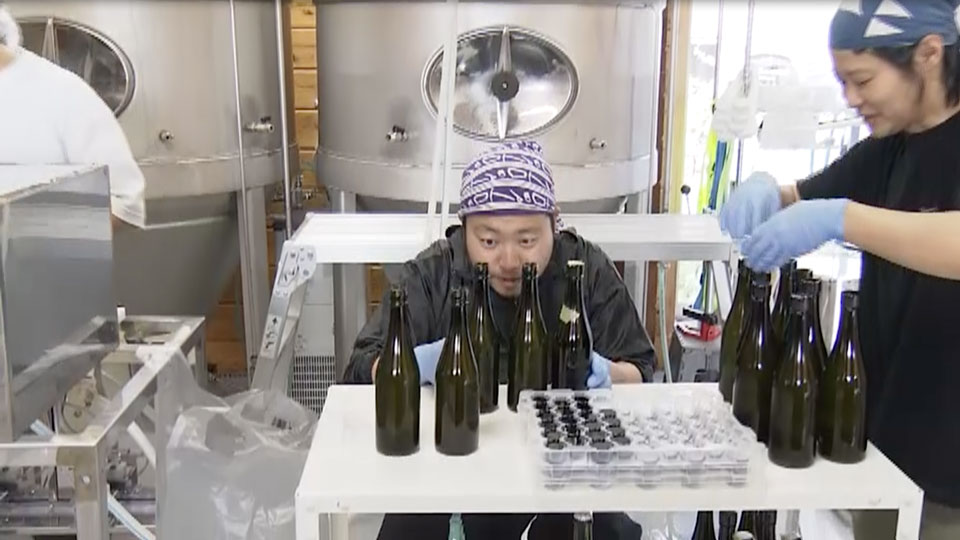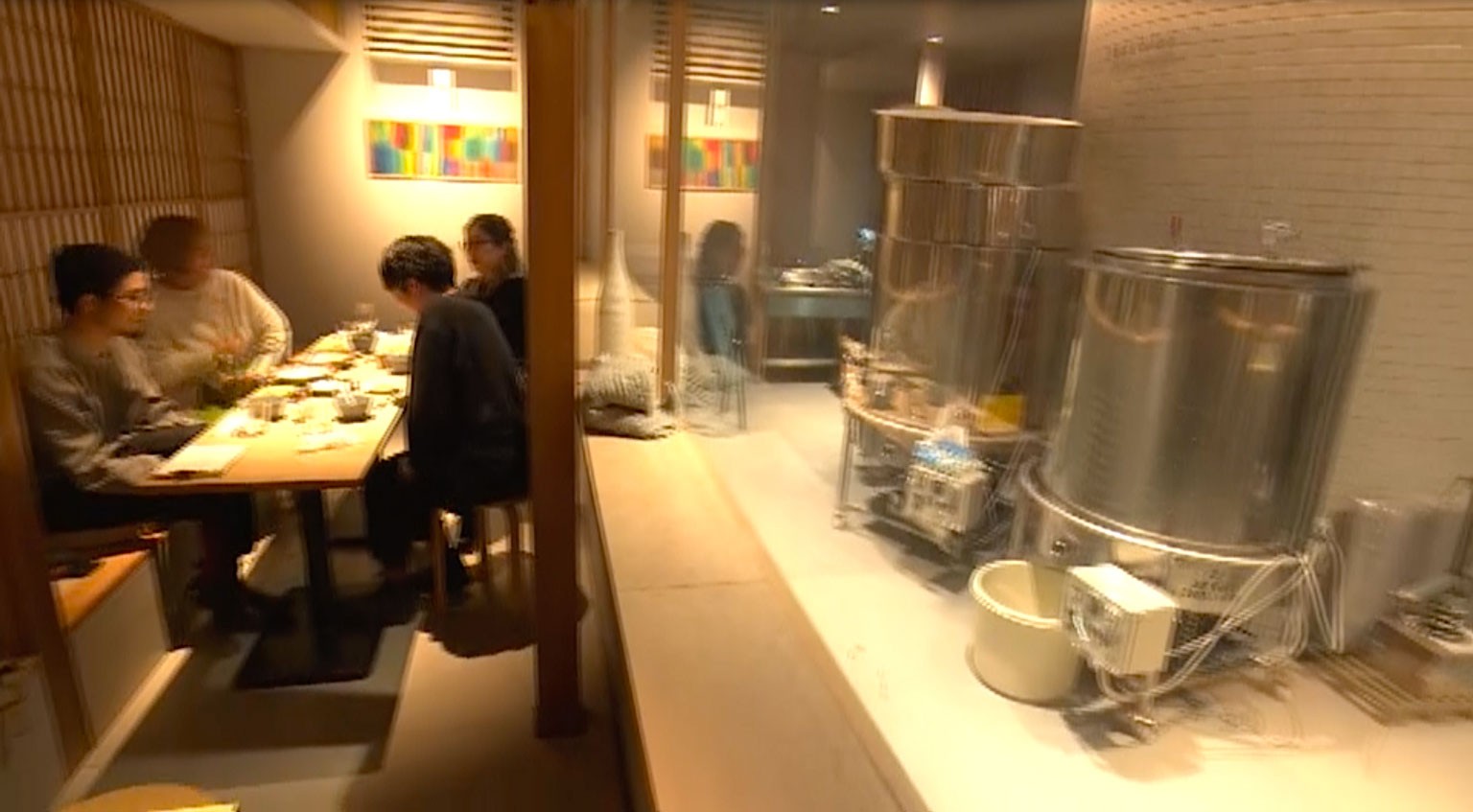That's thanks to Haccoba – which means "place of fermentation" – a craft sake brewery run by Sato Taisuke and his wife, Mizuki. They used to work for an IT firm in Tokyo, but moved to Odaka in 2019 to pursue their dream of sake-making.
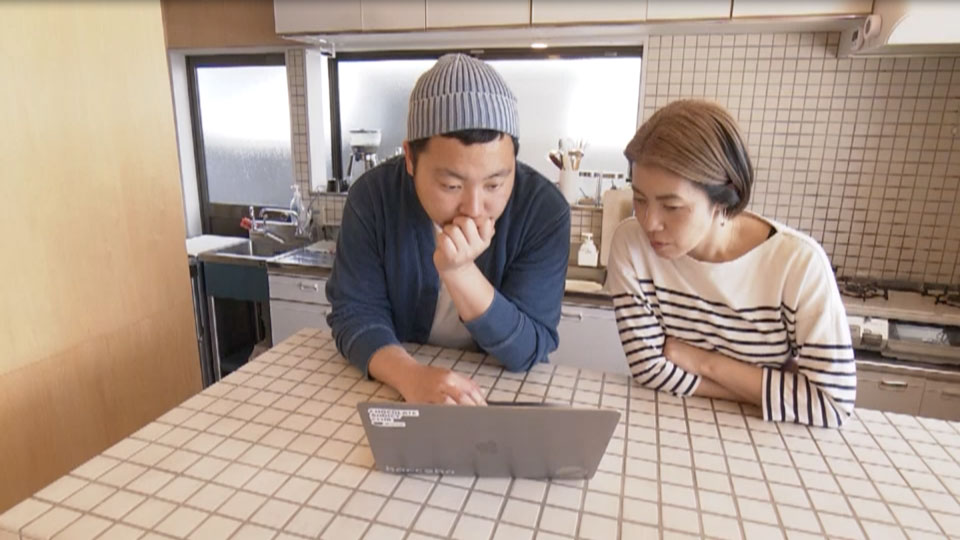
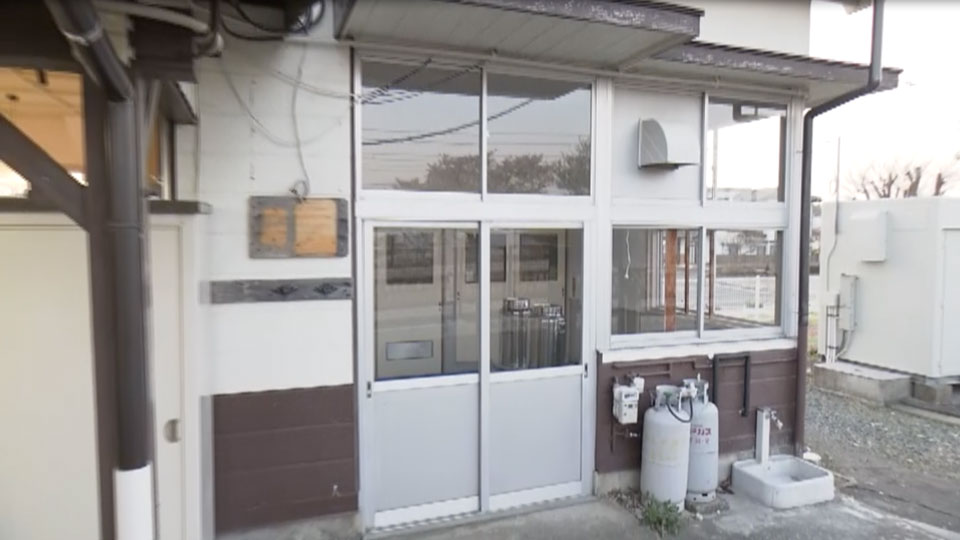
3.11 and birthday
Before the Great East Japan Earthquake and Tsunami in March 2011, Odaka had a population of around 13,000 and a bustling shopping street stretching for miles from the train station. But being less than 20km from the Fukushima Daiichi Nuclear Power Plant, which suffered a triple meltdown in the earthquake and tsunami, it was subject to a strict evacuation order. The area was emptied of residents until the order was lifted in July 2016. Now, only around 3800 people call Odaka home.
While most evacuees have not returned, in recent years, some newcomers such as the Satos have relocated there. Sato, however, has a unique reason for moving to Fukushima: His birthday falls on March 11.
"In a sense, it's an incident I will never forget," says Sato. "I was only a high school student when it happened, but I always felt a sense of mission, that I should do something here on this soil and help deal with the issues the area is facing following the nuclear accident."
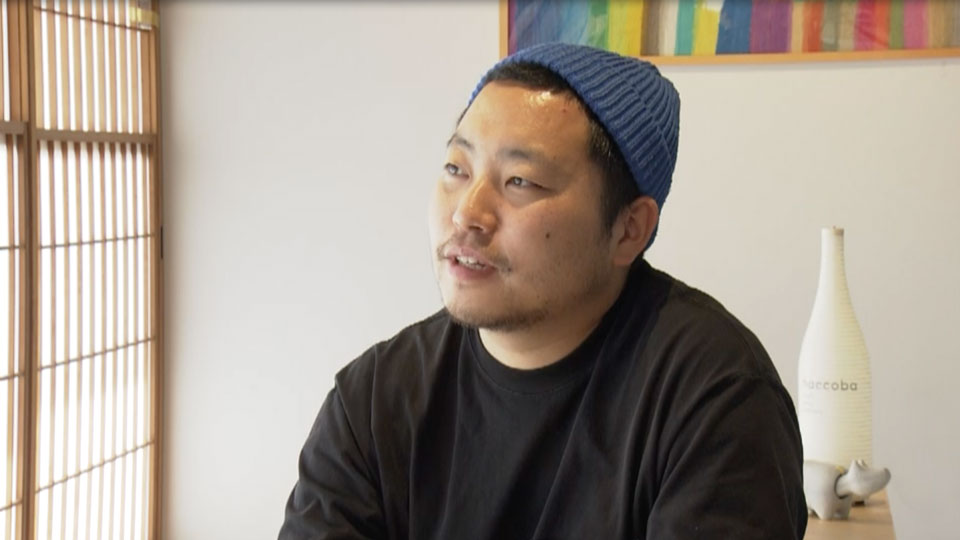
Pioneering spirit
Sato also feels that the clean slate offered by Odaka, for some years a "zero resident town," makes it a suitable setting for his venture into craft sake making.
"I hope to be able to express this area's strong frontier spirit through my sake," he says.
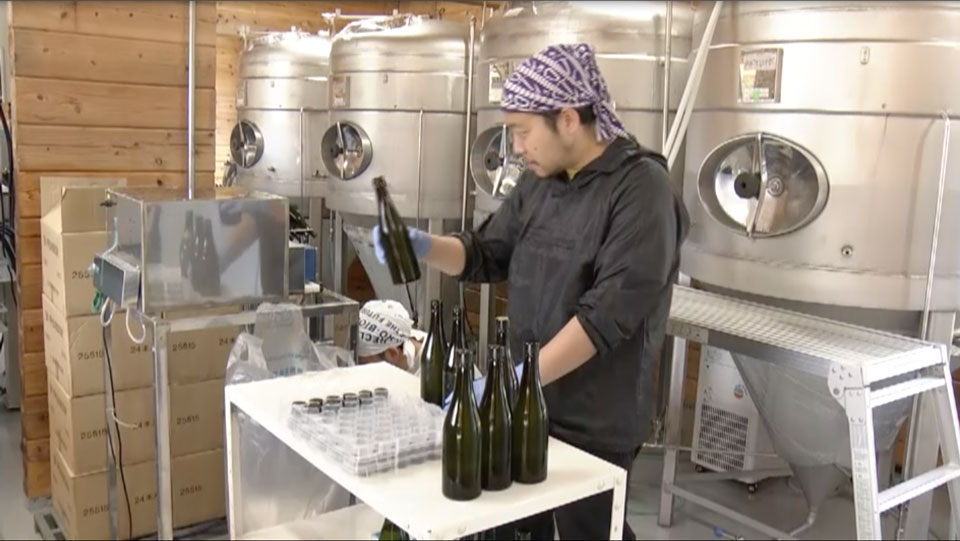
In fact, Sato is a pioneer in Japan's fledgling craft sake industry. In 2022, he helped set up the Craft Sake Breweries Association. Craft sake is made based on the traditional method for doburoku, a cloudy, unfiltered home-brewed sake. He adds hops, and various herbs, flowers and even ingredients such as miso and cocoa to create exciting new flavors that have won Haccoba fans all over the country since the brewery was set up in 2021.
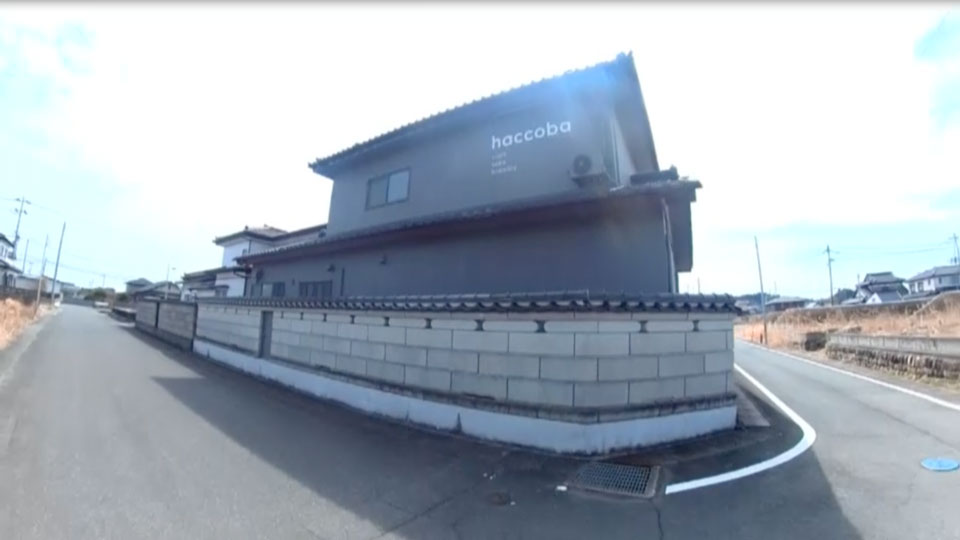
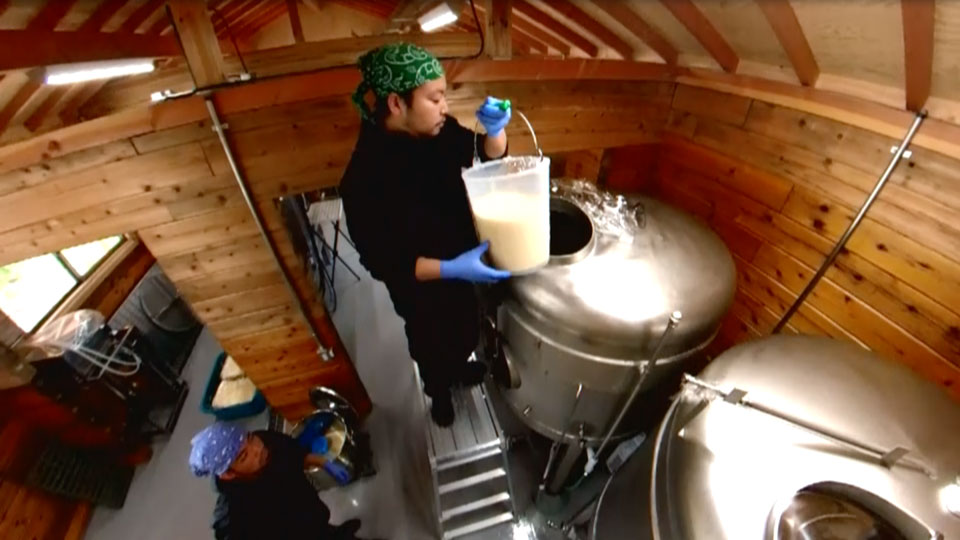
Initially, Haccoba's craft sake was only available online. Sato's background in IT led him to believe that was the best way to reach customers throughout Japan. And as Haccoba's craft sake is made in small batches, new labels usually sell out within days. As a result, some locals were left wondering about his commitment to the neighborhood.
"By focusing on online sales, it looked as if I was targeting customers from outside, and not the locals," Sato says. "Thinking back, I guess my plans and goals for the local community were not well conveyed."
Message in a bottle
And Sato is indeed a man with a plan. For him, craft sake is a medium to get people interested in Fukushima. The key ingredients -- rice and water -- are from Fukushima, and he hopes that people who like his sake will be keen to find out about its source and producers as well.
Organic rice farmer Nemoto Koichi has been planting rice in Odaka for over seven decades. In 2012, when the evacuation order was still in place but day trips were permitted for people to visit their homes, Nemoto jumped at the opportunity to tend to his rice fields, commuting from his evacuation shelter an hour away every day.
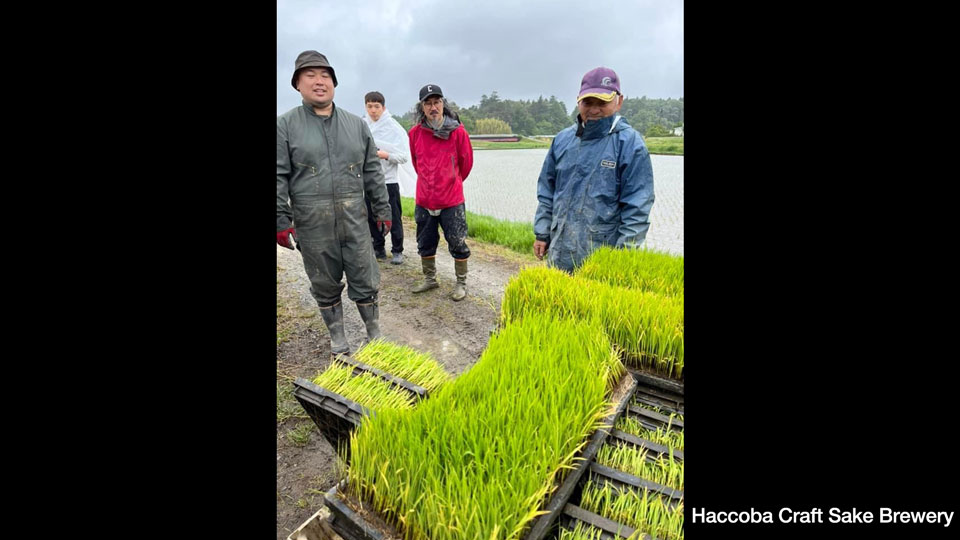
Due to food safety regulations, he wasn't allowed to sell any of his harvests, but for four years he plowed on regardless. "In hindsight, I must have looked like a fool," Nemoto says. "I was just so intent, so focused on returning to my fields. But I guess having gone through that made it possible to do what I'm doing now."
After Odaka was deemed a safe place to live in July 2016, Nemoto was well placed to quickly ramp up his farming operation and start providing organic rice to sake breweries in Fukushima. He's now Haccoba's main local rice producer.
Sato is impressed by the veteran farmer's commitment. "You can feel his deep passion -- or you could say, his sense of conviction, toward his rice fields," he says. "And that really inspires me to bring that across through each bottle."
Every year, during the busy planting season, Sato ropes in his staff, and even fans of his craft sake, to lend Nemoto and his son a hand. The two of them now tend to over seven hectares of rice fields.
"I think the more people who know about our sake and its ingredients, the more they'll enjoy it," says Sato.
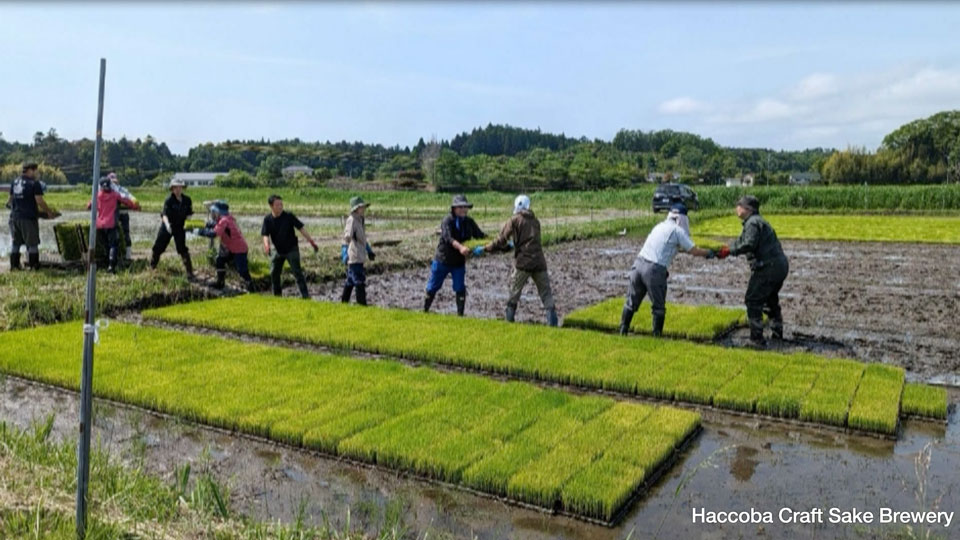
For the sake of community
Yachi Shigeichi, one core member of Odaka's community who has been watching Sato's activities with interest, is a third-generation fish retailer.
Yachi returned to Odaka on the day the evacuation order was lifted – July 12. By July 15, he had reopened his fish shop. Locals have always depended on him for fresh seafood.

He lives round the corner from the Satos and helped them settle in when they first arrived.
At first, Yachi was a bit concerned by the amount of time Sato was spending away from Odaka – attending events promoting craft sake and forging various collaborations – as well as the unavailability of Haccoba's sake at physical stores. But gradually, he came to understand that Sato had a bigger picture in mind for the area's revitalization.
"Sato has been doing all sorts of things for the area that we, people who've been living here all this while, would never even dream of. For that, I'm thankful," Yachi says.
For example, Sato also set up a restaurant and bar at his brewery, which gives older residents like Yachi a space to mingle with newer faces in the community. That was exactly what Sato intended. He was painfully aware that in Odaka, venues for socializing are few and far between.
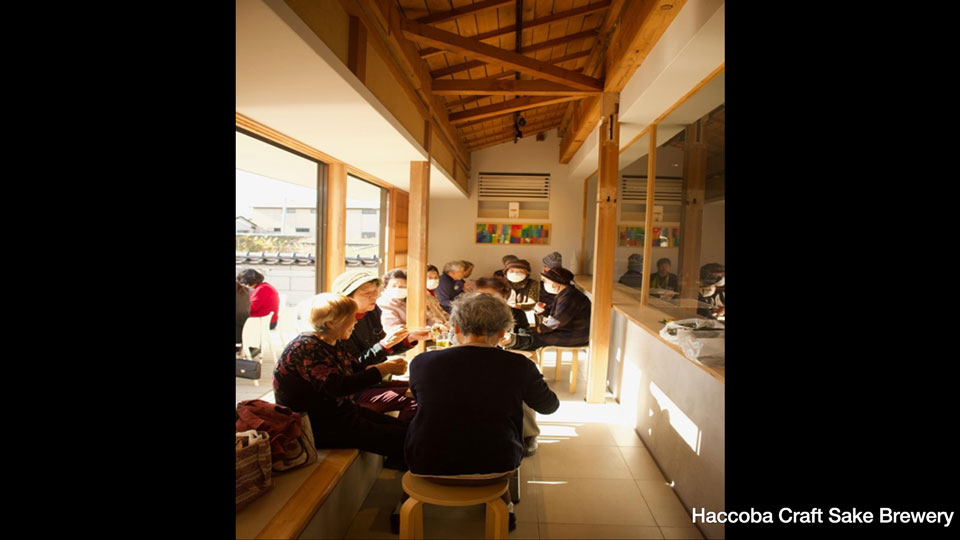
Today, the venue even attracts fans of Haccoba's craft sake who travel all the way from Tokyo to get their fill.
Since opening his first brewery and restaurant in Odaka three years ago, Sato has been on a roll. Last year, he opened another brewery in the neighboring ward of Namie, and this year he launched a micro-brewery at Odaka station as part of an effort to revitalize it.
Entrepreneurs in training
Odaka station has been unmanned since the local line reopened in 2016. As trains are infrequent and commuters few, the station master's office was left empty.
"A train station with nobody around or no sign of life is kind of sad, so I felt we should do whatever we can to keep a spark of life and light shining here," Sato says.
The micro-brewery is just one element of Sato's plan for the station. The unused station master's room now has three parts: A shop, a public lounge, and the micro-brewery adjacent to it.
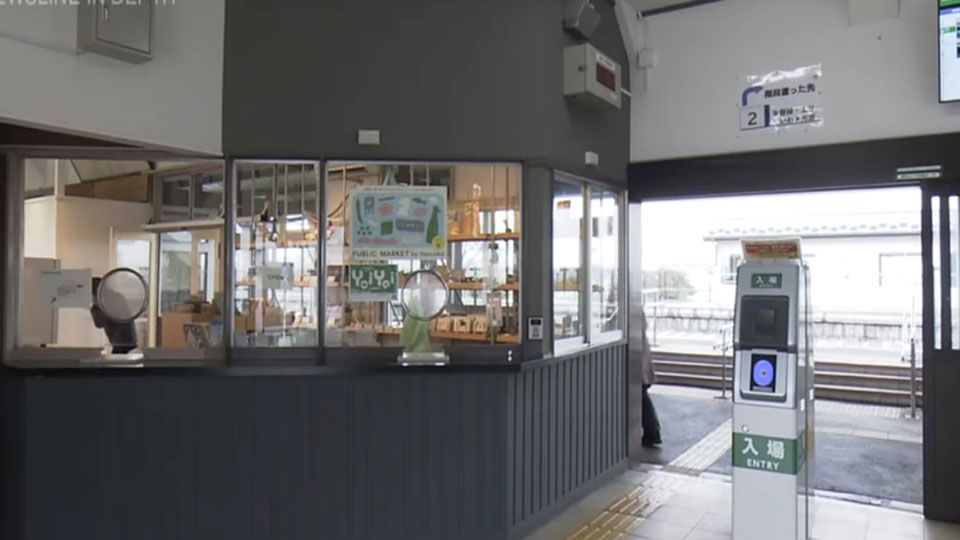
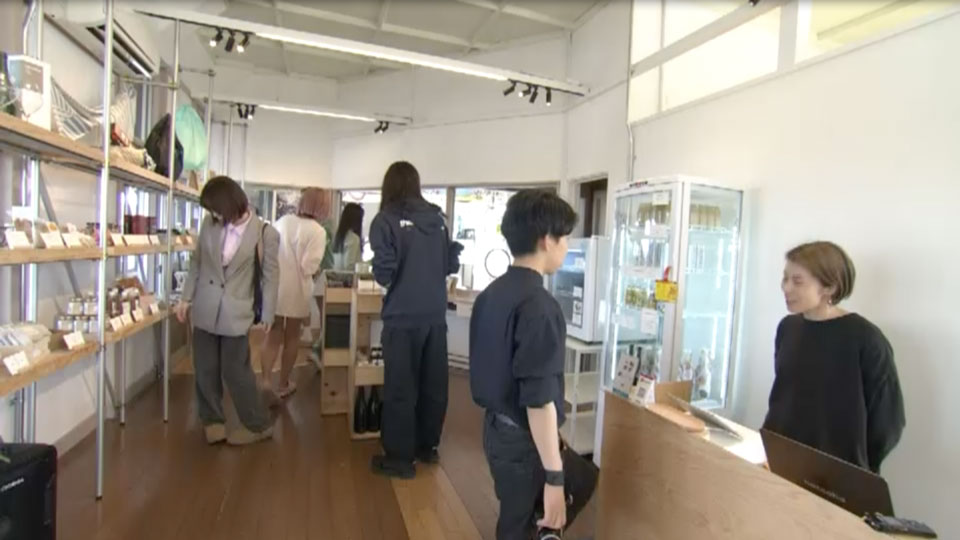
The shop offers a wide range of stationery, local souvenirs and sweet treats for the station's main users – high school students.
"It's wonderful to have such a space because waiting times can be long, and it gets cold," says a high school student who lives a station away.
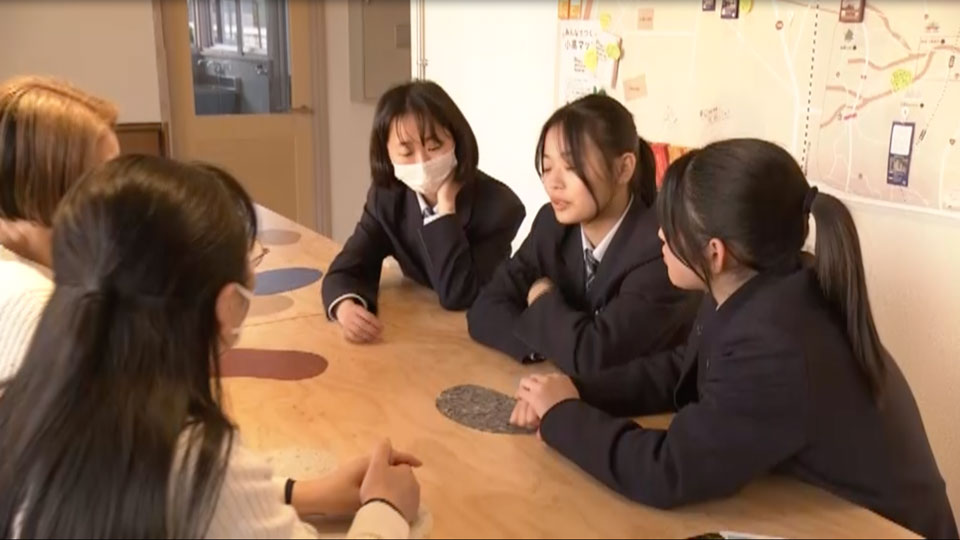
Sato's wife, Mizuki, runs the station shop. When she was getting started, she polled the local high school students to see what they wanted.
"They're the main users so it's good to hear directly from them what they would like to see being sold," Mizuki says.
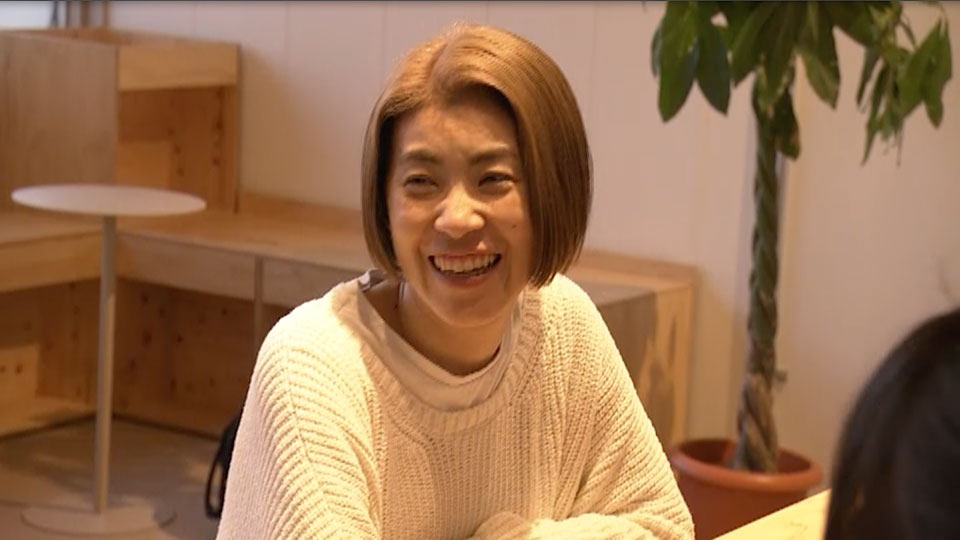
This way, the shop provides a platform for the students to gain valuable exposure to how a business is run, such as managing inventory and organizing events. Now, they're even planning to hold a summer or autumn festival at the station. As the symbol of the area, Sato also wants Odaka Station to leave an impression on visitors right upon arrival as a place of open innovation.
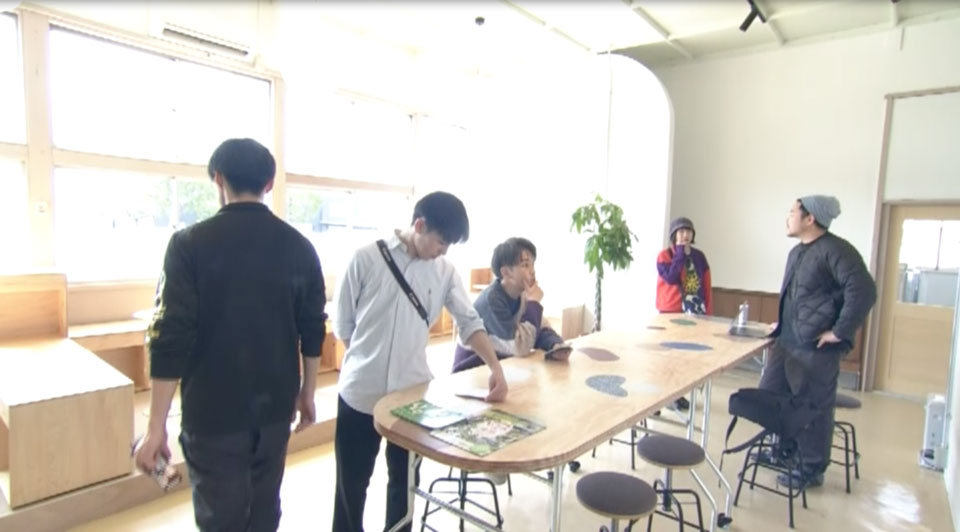
"I think it'll change the way people view this place. And I also hope it'll leave an impression on the high school students so that even if they leave for bigger cities, they may think of returning one day, and setting up their own business here," Sato says.
For Sato, the March 11 tragedy underscored the vulnerability of small communities that rely on large external entities, such as the nuclear power plant. So, he's working with the long-term aim of helping to build a robust local economy.
"As much as possible, we should have a local economy which can survive on its own. I hope to play a part in creating such an area which can stand on its own feet," he says.
That's the message that Sato hopes to craft through each and every hand-sealed sake bottle.
